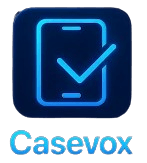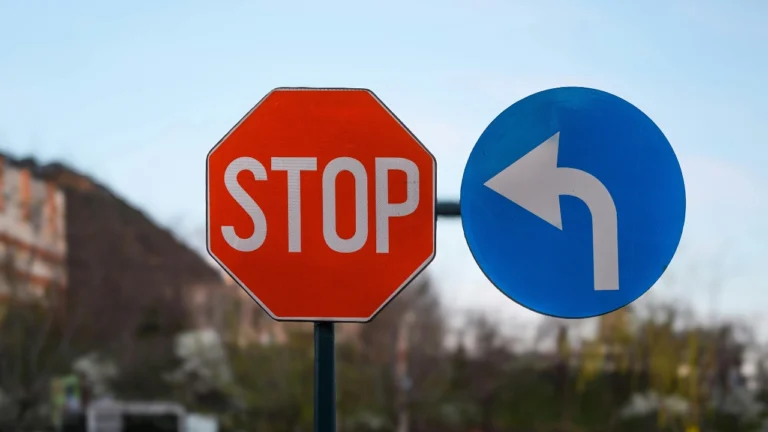Changes to debt collection laws coming this 2021…
By November 30th, 2021, major changes to debt collection laws will be noted in the United States. These changes affect the Fair Debt Collection Practices Act (FDCPA) – a law that governs the behavior of debt collectors during the debt collection process.
The FDCPA is upheld by the CFPB (), and these changes to collection agency rules were instituted by the CFPB in an attempt to redesign the 40-year old laws contained in the Fair Debt Collection Practices Act and modernize how debt collectors and consumers interact in the new age.
Without further ado, here are 5 major ways debt collection laws are going to change in 2021:
1. There will be stricter limits on debt collection calls: While the basic FDCPA rules still remain in place, the new debt collection laws have limited the number of times that a debt collector can call you to once a day. If the debt collector actually reaches you, then they can’t call you again for seven more days.
2. You no longer have to send a cease-and-desist letter to ask a debt collector to stop calling you: In addition to the new rules for calls, the new debt collection laws indicate that consumers will no longer have to go through the arduous process of sending a cease-and-desist letter when they need a debt collector to stop calling. Instead, you can simply make the request over the phone and debt collectors will be obligated to stop contacting you through that method.
3. Social media, texts, and debt collection emails as a method of collection: Previously, debt collectors could only contact you via phone or direct mail, however, these new debt collection laws, other methods of communication ( such as debt collection emails) have been added to the other methods for debt collection. Debt collection agencies seeking to discuss a debt can now contact you via text, email, and even send you a DM on social media. This means less privacy for you.
4. The onus of debt validation is now on collectors: In the past, you would have to request a written validation if you are contacted by a debt collector (which could take up to 30 days). With this change in collection agency rules, the debt collector is now required by law to validate the legitimacy of the debt at the point of the first contact or not more than 5 days later.
5. Changes to the way your debt can be reported on your credit report: The new collection agency rules state that debt collectors can no longer report your debt to the credit bureaus before they have informed you about the details of the debt either on phone or via a debt collection email. They are also required to wait a reasonable amount of time (about 2 weeks) to ensure that you have received their letter or email before they proceed. This is great news for your credit report.
6. Debt collectors can no longer sue you on time-barred debts: The new debt collection laws not only outlaw debt collectors trying to sue consumers over debts that have exceeded the collection statute of limitations but also make it unlawful for them to even threaten to sue you for a time-barred debt.
How do these new collection agency rules affect you?
With debt collectors now on your phone, in your mailbox, and social media DMs, there will be no place to hide.
While these new collection agency rules place a limit on the number of phone calls, there is notably no limit on the number of emails, text messages, and DMs that debt collectors are allowed to send you. This means that you may get bombarded through these channels and can easily feel overwhelmed.
Additionally, these channels open up a larger possibility of getting contacted by a fraudulent or non-existent collection agency claiming that you owe a debt. You will have to be extremely vigilant to avoid becoming the victim of a debt collection email scam which further increases the level of stress you may experience.
What can you do about these new debt collection laws?
As always, retaining the services of a qualified debt collection professional is in your best interest. Since all forms of communication will be directed to them, you can rest assured of adequate representation and peace of mind.
Consumer Rights Law Firm has been representing consumers in debt collection cases since 2010. With the new changes to debt collection laws coming this 2021, you need a debt collection attorney now more than ever. Call us now at 877-700-5790 now to discuss your case.
[button link=”#877-700-5790″ color=”lightblue” newwindow=”yes”] Call us[/button]
FAQs
- Why don’t debt collectors leave messages?
They do. A debt collector is, however, not permitted to drop a pre-recorded message especially for the purposes of promotion and advertisement where you have not granted them permission to do so. If you have received a message from a debt collector, play it back to ensure that it is FDCPA compliant.
- Can a debt collector leave a message with a third party?
Yes, provided that the message does not contain sensitive details about your debt. If a debt collector has been unable to reach you, then they may leave a message with a third party requesting that they tell you to call them back. A debt collection agency is permitted to reveal sensitive details about your debt to your parents (if you are a minor), spouse, and co-signor alone.
FAQ:
How can Consumer Rights Law Firm PLLC assist with debt collection issues?
Consumer Rights Law Firm PLLC represents consumers facing debt collection harassment, ensures debt collectors follow the FDCPA, and provides legal guidance to protect your rights in all forms of communication.What changes to debt collection calls were made in 2021?
Debt collectors can now call only once per day, and if they reach you, they must wait seven days before calling again. This limits harassment and gives consumers more breathing room.Do I need to send a cease-and-desist letter to stop calls?
No. Under the 2021 debt collection law changes, you can request a debt collector to stop calling you verbally, and they are legally required to comply without a written cease-and-desist letter.Can debt collectors contact me via email, text, or social media?
Yes. Debt collectors can now use texts, emails, and social media direct messages to contact you, which expands their communication channels but may reduce your privacy.Who is responsible for debt validation under the new laws?
Debt collectors must validate the debt at first contact or within five days. Consumers no longer have to request validation, placing the onus on the collector to prove the debt is legitimate.When can debt collectors report my debt to credit bureaus?
Collectors cannot report your debt before informing you about it via phone or email and must wait approximately two weeks to ensure you received the notice before reporting it.Can debt collectors sue me for old or time-barred debts?
No. Under the 2021 rules, debt collectors cannot sue or even threaten to sue you for debts that have exceeded the statute of limitations, protecting consumers from unfair legal actions.What should I do if I receive multiple calls or messages?
Track all calls, texts, and emails, and consider hiring a qualified debt collection attorney. An attorney can ensure collectors comply with the FDCPA and prevent illegal harassment across all channels.Why don’t debt collectors leave messages sometimes?
Debt collectors cannot leave pre-recorded messages for promotion without permission. If a message is left, it must comply with FDCPA rules and cannot contain sensitive or promotional information.Can a debt collector leave a message with a third party?
Yes, but only with limited disclosure. They can tell parents (if minor), spouse, or co-signor to call back, but cannot reveal sensitive debt details to other third parties.







